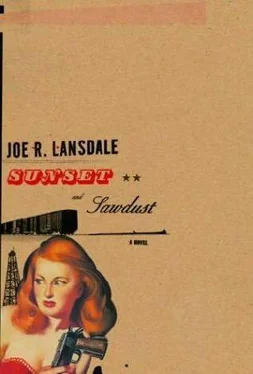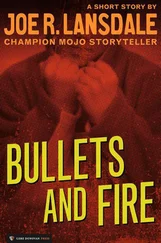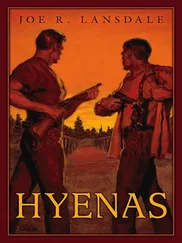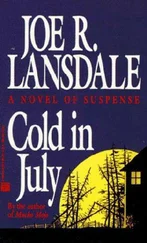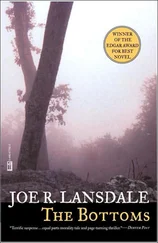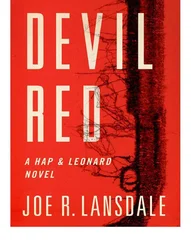“I’m supposed to help Sheriff Knowles?” Sunset said. “I thought we just arrested chicken thieves and asked drunks to shut up.”
“Knowles don’t usually need help,” Clyde said. “Knows where the trouble is and who starts it. So it’s not like he has to do any big detective work. Just sometimes there’s more going on than he can handle. What with all them oil field people moving in. Did you know they got a picture show over there in Holiday now?”
“No shit?” Hillbilly said.
“No shit,” Clyde said. “On bank night you can win money.”
“Bank night?” Hillbilly said.
“Yeah. They got a contest. You can do a drawing. You win, you get cash money. Sometimes they don’t give money, they give dishes.”
“Can you sell the dishes back?”
“I don’t know. I guess you might.”
“I don’t need dishes.”
“First you got to win them.”
Sunset listened to this exchange, said, “You know, I don’t know about picture shows, or bank nights, or dishes, but I thought I was constable of Camp Rapture, not Holiday.”
“You are,” Clyde said. “But Knowles helps here, and you help there. How it’s done.”
“But I don’t have jurisdiction there.”
“Knowles don’t have it here,” Clyde said.
“Exactly,” Sunset said.
“No one cares because most folks don’t know about jurisdiction,” Clyde said. “Hell, they can’t even spell it. Fact is, I can’t spell it. Half the colored around here ain’t never even heard the word. You got a badge. Sheriff Knowles has a badge. That’s the sum of it. You’re the law, Sunset.”
“That’s a relief,” Sunset said, “but what if he does need me, and I end up with someone who’s kind of rowdy, ain’t for being arrested? What then?”
“Then we’ll appeal to their human side,” Clyde said, and pulled a slap jack out from under his shirt and struck the table with it. It sounded like a gunshot and made Sunset and Hillbilly jump.
“Damn, Clyde,” Hillbilly said. “I near messed myself.”
“This little buddy,” Clyde said, shaking the slap jack, “is a real persuader. Make a woolly booger into a lamb, that’s what it’ll do. Make a bear pick you flowers.”
Sunset looked at the slap jack. It was about a foot long, a folded piece of thick leather. It was flexible, but it had seasoned out hard.
“That don’t work, you buffalo him,” Clyde said.
“Buffalo him?” Sunset said.
“Means you take that pistol you got there, bring it up alongside his body so he can’t see it, and clip him with a backward move, so’s the barrel catches him below the ear where the jaw hinges. You do that, back to front, when he wakes up, his wife will be remarried and his kids will be grown.”
“What if he’s looking?” Sunset said.
“Then you tell him, ‘Goddamnit, that woman’s done got naked over there.’ When he turns, you bring that pistol out and drop all hundred and so pounds you got on the back of his noggin. Hit him like you’re trying to drive a nail. That won’t do him any good, but it’ll do you plenty. If there’s more than one of us, and there ought to be, cause that’s how you do police work, we all hit him from different directions.”
“If that doesn’t work?”
“Then we shoot him. The leg if you got time. If not, just pop him somewhere. Hell, you’re the law.”
“Guess we’ve covered arrest techniques,” Sunset said.
“Some of them,” Clyde said.
“Hillbilly,” Sunset said, “you have a comment?”
“Not really. Well, I think I stepped in something. I’m going to go outside and clean off my boot. I’ll clean up the floor here when I get done.”
Hillbilly lifted his foot, looked at the bottom of his boot.
“Dog, I reckon.”
“Suppose that makes you our tracker,” Clyde said. “Way you recognized which kind of shit it is right off.”
Hillbilly took off his boot and stood up.
“Before you go outside with that,” Sunset said, “and believe me, I want you to, I want to thank you fellas. I don’t know how much I know about this-well, I don’t know anything. Not really. A thing picked up here and there from Pete. But I’m going to take it seriously and do the best I can.”
“Wouldn’t be here if I didn’t think you were,” Clyde said.
“How come you men did this?” she asked.
“I’m saving up for a guitar,” Hillbilly said. “That’s the truth and the long and the short of it. Other than not liking to work at that goddamn sawmill.”
“I thought, hell, give the lady a chance,” Clyde said. “Besides, I don’t like working at the sawmill neither.”
Clyde, with his own tools and Hillbilly’s reluctant help, spent the morning building an outhouse out of lumber they found among the remains of the house. They had to climb a couple of trees to get at some of it.
Clyde seemed to have a real knack with tools, and Hillbilly was an adequate board holder. He had attempted, at Clyde’s request, to nail a board or two, but had only succeeded in getting the work crooked and hitting himself in the thumb with the hammer, causing Clyde to demote him to board holder.
Sunset, who watched this as she levered water from the pump, found Hillbilly kind of endearing, like a little boy. Another thing was, though hot and sweaty, Hillbilly still managed to appear sweet and clean.
Clyde, on the other hand, had taken on the appearance of a man dragged through a berry patch by a runaway mule. When he wasn’t hammering and measuring and sawing, he was wiping back his wet black hair and scratching parts of his body that were best left to dark rooms and private attention.
About noon Karen got up, having spent all morning in bed. She got up complaining about how the outhouse construction, all the hammering and nailing, had woke her.
“It’s darn near one o’clock,” Sunset said. “Normally you’d be doing chores.”
“Normally, I’d have a daddy,” Karen said.
Sunset had nothing to say to that, and Karen turned pouty.
Two in the afternoon and the outhouse was finished. Clyde and Hillbilly found a tree to sit under, where they could enjoy the shade. Sunset brought them out sandwiches, sat down by Hillbilly with her own sandwich, and they ate. Karen stayed in the tent.
When they finished eating, Clyde said, “I think I’m going to be the first ass in that outhouse. I feel it coming.”
“I don’t need to hear that,” Hillbilly said.
“It’s just a natural process,” Clyde said.
“Boys,” Sunset said, “interesting as Clyde’s outhouse habits are, I been thinking, and I believe it’s time we start earning our pay.”
Clyde knew Zendo and where he lived. Unlike many negroes, Zendo owned his own land and was not a sharecropper. He had worked in the sawmill for years, putting back every available dollar. Growing crops on the side while he sharecropped, feeding himself and selling the excess.
When he had the money, he bought at an inflated price, because he was a negro and in no position to quibble, a fine piece of bottomland near the creek, cleared a large chunk with an axe, a mule, and a strong back, and started growing vegetables. Used terracing and water channeling from the creek, staked tomatoes, fought bugs.
Fifteen years later, much to the dismay of many white farmers, his farm was the most productive in the county. People drove by just to look at it, lying there in its man-made black dirt, bordered at all four corners by massive compost piles contained within log structures.
Sunset and her deputy constables, and Karen, rattled out to Zendo’s farm in Clyde’s pickup. When they got there, they went by Zendo’s house, which was in better condition than most houses in the area. The tar-paper roof was nailed down tight and there wasn’t any cardboard in the windows.
Читать дальше
